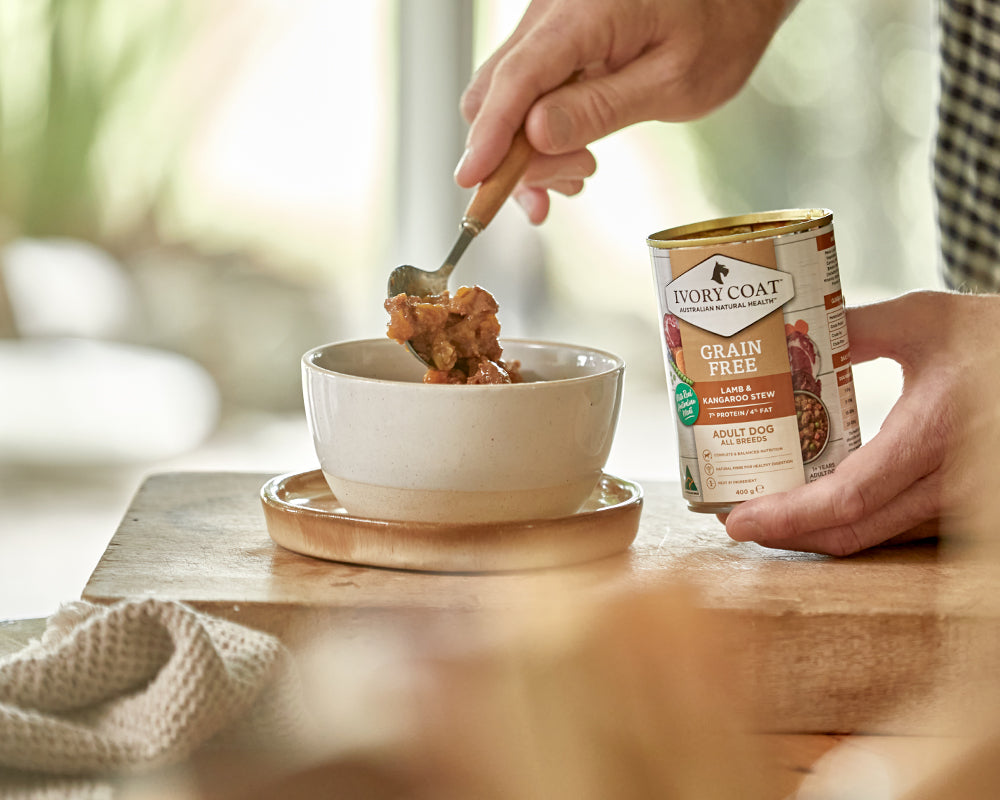A bag of pet food provides an overwhelming amount of information. The idea is for customers like you to learn about the food, its manufacturer, and compliance with all regulatory requirements so that you can make an informed choice on what to buy.
Specifically, a pet food label tells you what the product is, who the product is intended for, the ingredients, the nutritional composition, and who manufactured the product. Breaking down what it all means will help you feel confident in your decision when choosing a pet food.
So let’s take a closer look:
MANUFACTURER One thing you’ll notice is the name and address of the distributor or manufacturer. Reputable manufacturers will also provide contact and website information in case you have any questions, concerns, or want to provide feedback.
INGREDIENTS LIST The ingredients list is one of the most important pieces of information on the product. All ingredients used to make the product must be listed in descending order by weight in the ingredients list. This allows you to see which ingredients make up most of the finished product, and also provide clarity on the sources of protein, carbohydrates, and fat.
“COMPLETE” OR “COMPLEMENTARY” Pet food can either be a “Complete and Balanced” diet, or it can be “complimentary.” When a pet food is complete, it means the food has been formulated to contain all the essential nutrients for your pet in the appropriate amounts for their age group.
For example, puppies and kittens require more nutrients to support their growth, so it’s important to buy food that is formulated for their life stage. Internationally recognized associations such as AAFCO (Association of American Feed Control Officials) and FEDIAF (European Pet Food Industry Federation) provide the nutritional profile information that pet foods are required to be formulated by in order to make a Complete and Balanced statement. To know if the product you are choosing is Nutritionally Complete and Balanced, look for the following statement: ...formulated to meet the nutritional levels established by AAFCO Dog Food Nutrient Profiles for Adult maintenance. ...formulated to meet the nutritional levels established by AAFCO Cat Food Nutrient Profiles for growth. - or something to that effect. A complementary product is one that does NOT meet the daily energy and nutrient requirements according to the nutritional profiles for the pet’s respective lifestage.
These products should not be relied on to provide the total nutrition your pet needs, and therefore should only be fed to your pet as a complement to their main diet. A food that is complementary must be clearly stated as such on the label. Common examples of complementary products are treats, functional snacks such as dental products, meat only products such as canned fish, and jerky style products. Complementary foods can either be: Simply a fun treat A flavour boost you can add to their “complete” food A specific nutritional supplement, such as hip & joint chews or probiotics It’s important to remember complementary foods can put their diet out of balance, so it’s best to give these in moderation and not allow them to over-indulge!
GUARANTEED ANALYSIS Essentially the same as the nutrition information panel found on human food packaging, the guaranteed analysis is a table specifying the level of Crude Protein, Crude Fat, Metabolisable energy, and any claimed nutrients. “Crude” is not referring to the quality of the product, but the way in which the nutrient is measured. You can use the Guaranteed Analysis to compare brands of pet food.
PRODUCT CLAIMS Dog and cat foods will have all different types of claims to showcase the benefits of the food, quality and integrity of the food, or to make consumers aware of the nutrient levels of food. Some examples of product claims include: “High quality, all natural” “Helps support strong bones” “Maintains healthy gut” and many more. Product claims must be substantiated by the manufacturer or they could be deemed misleading.
At IVORY COAT, all the claims that are on our dog and cat foods are backed by rigorous quality assurance processes, including analytical analysis, nutritional understanding, and auditing to ensure our ingredients meet our quality standards.
FEEDING GUIDES All dog and cat foods that are Nutritionally Complete and Balanced must provide a feeding guide on the packaging. These instructions tell you how much of the product to give your dog or cat depending on their weight and age. They take into consideration energy requirements, nutrition requirements and feeding regime such as mixing wet and dry foods. It is important to note these are guides only and may need to be adjusted accordingly to maintain an ideal body weight for your pet. In addition to the feeding guide, our IVORY COAT products will also provide information on how to transition your pet onto an IVORY COAT diet. Transitional feeding is important to ensure the pet is introduced to new foods gradually to avoid stomach upsets and digestive issues such as diarrhoea. We recommend a 14 day transition.
DIRECTIONS FOR USE AND STORAGE If specific storage conditions are required for a food to keep until its best-before or use-by date, those conditions will be included on the label. Storing a can or dog roll correctly if being used over multiple meals is particularly important to avoid tummy upsets or food poisoning. When preparing fresh pet food, just as you store or prepare raw meat for your own meals, care must be taken to handle the food correctly. Keep separate from other food. Refrigerate leftovers immediately or discard. Wash working surfaces, utensils and hands with hot soapy water.
WHEN IN DOUBT, GET IN TOUCH! We are here to help. Search our Support page on our frequently asked questions, drop us an email, or give us a call. We’d love to hear from you!



